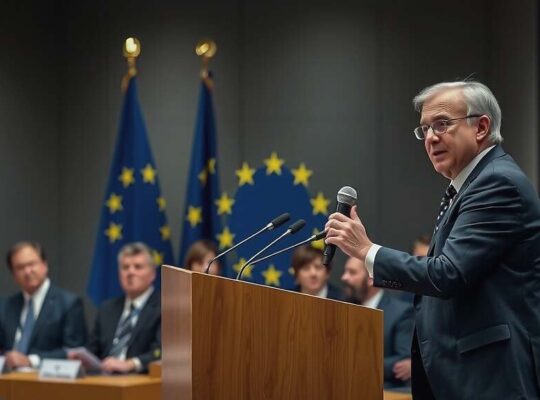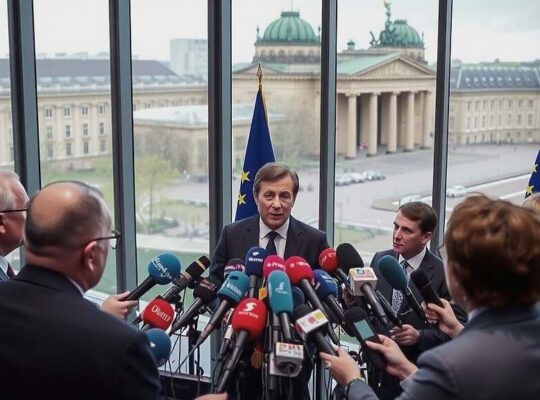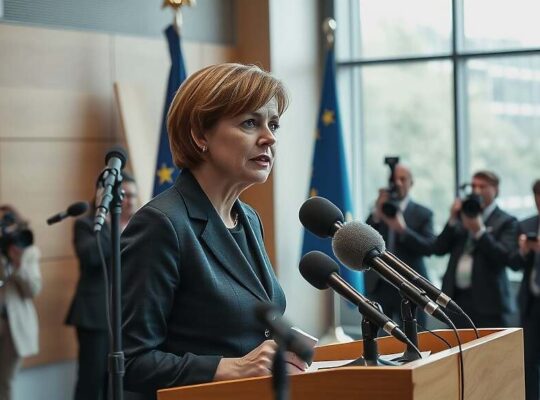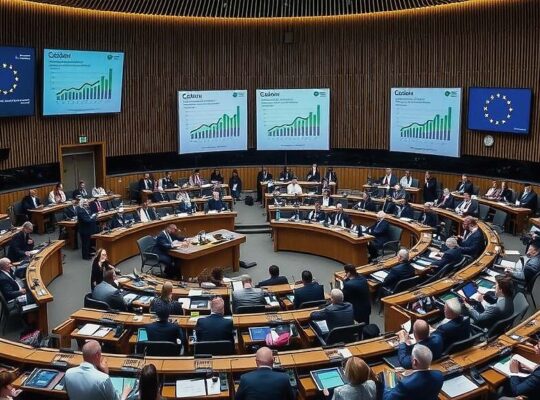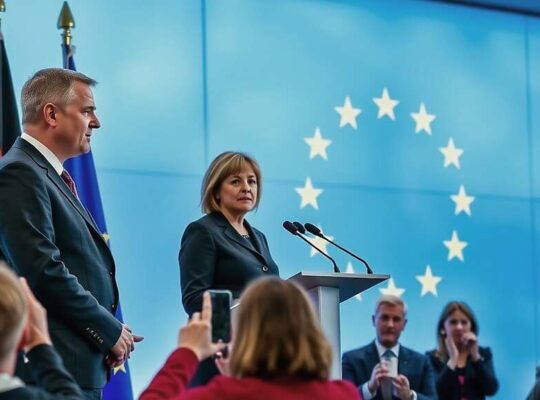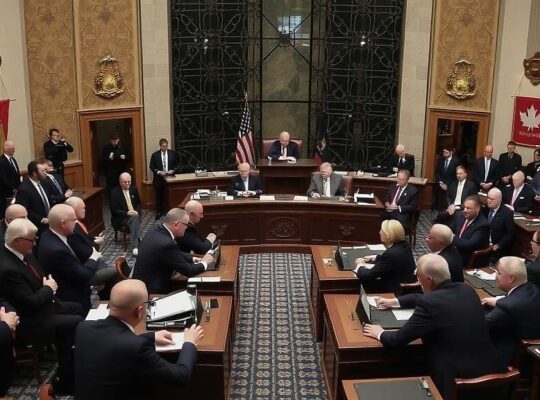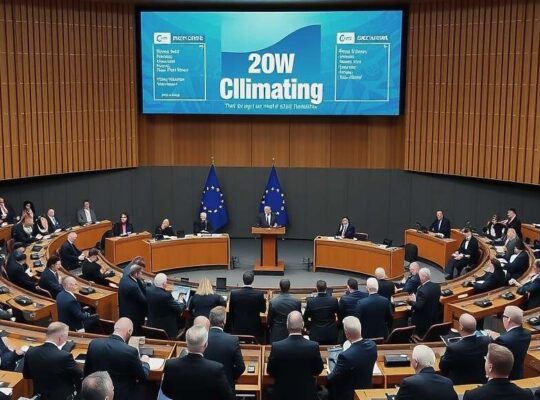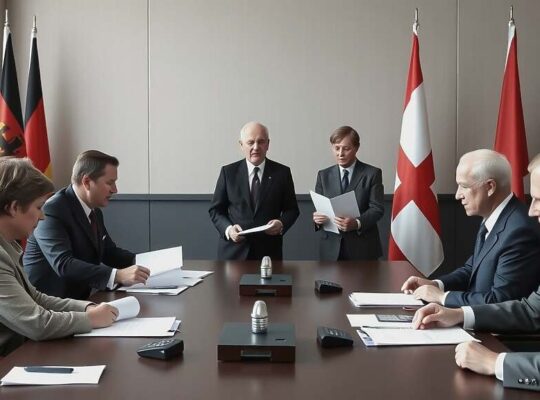The European Union’s ambitious plan to impose a carbon price on buildings and transport from 2027 via the proposed Emissions Trading System 2 (ETS 2) is facing mounting criticism from experts who warn it risks undermining Germany’s climate protection goals. Concerns are escalating over concessions introduced by the EU Commission, potentially rendering the mechanism ineffective.
A key point of contention is the introduction of a price ceiling, intended to cap CO2 prices at an inflation-adjusted range of 60 to 65 euros per tonne. This threshold, according to Michael Pahle of the Potsdam Institute for Climate Impact Research, effectively establishes a politically acceptable maximum price, significantly curtailing the system’s potential impact. Futures markets are already reflecting this dampened expectation, with prices plummeting from over 80 euros to approximately 63 euros per tonne since the announcement.
Stefan Bolln, chairman of the energy consulting association GIH, argues that such a low carbon price sends the wrong signals, maintaining the economic viability of fossil heating systems and effectively penalizing early adopters of sustainable alternatives. The consequence, he warns, is a disincentive for investments in renewable energy and building efficiency improvements.
Currently, Germany operates a national CO2 price of 55 euros per tonne, already reflected in a modest increase of approximately 16 cents per liter of gasoline compared to 2020 when such a levy was absent. The prospective EU price of 63 euros per tonne would add only a further two cents per liter, a sum dwarfed by typical fluctuations based on daily and regional variations.
Jakob Graichen of the Freiburg-based Öko-Institut is particularly critical of the political maneuvering surrounding the ETS 2. He warns that the prospect of state intervention at higher price points encourages a “wait and see” approach, disincentivizing the purchase of emission allowances and undermining the intended market-driven shift away from carbon-intensive practices.
Even Agora Energiewende, a renowned energy transition think tank, anticipates a limited price increase upon the integration of ETS 2 into the German system, suggesting a potential even slight decrease. To ensure the desired steering effect, they propose the implementation of a national minimum CO2 price as a corrective measure. The debate highlights a fundamental tension between political expediency and the urgent need for robust carbon pricing to accelerate the decarbonization of Europe’s building and transport sectors.



